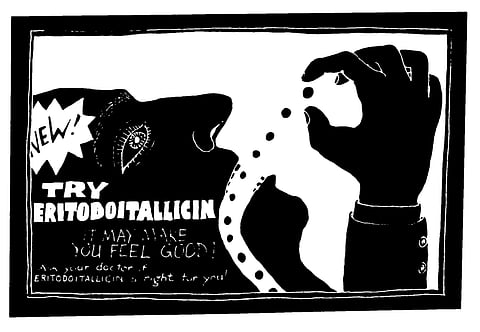Trust, ethics and spurious medicine
In marketing there are three C's we use: First we try to convince. Then we try to confuse. If the doctor is confused, they can think, 'Maybe the drug will work, let's just try it.' And then he will prescribe a few. And then the third C is to corrupt.
– Anti-depression drugs-marketing manager, 7 November 2007
Pharmaceuticals are poisons, chemicals that have both potentially beneficial and potentially dangerous effects on the body. The system that produces, distributes and dispenses pharmaceuticals is vast and complex, and questions of trust are central to the concerns of all involved, but particularly to the consumers of medicines. When ill and vulnerable, as consumers, we need to be assured of the quality and efficacy of the product. We need to trust the product and know that the drug being dispensed is what it claims to be; that the quality of the drug is such that it will not poison us with the unwanted effects; and that the dosage of active ingredients is as stated on the package. We need to trust the prescribers and retailers to give us the right drug for the right condition. And when things go wrong – when medicine is prescribed not because it is right for the patient but because it gives most profit to the prescriber, or when the true ingredients are not as stated on the label – patients may die. But since we, the general public, know so little about what the various drugs actually do, we simply have to trust the suppliers – in ways we would never do when dealing with, say, a mechanic or a shopkeeper.
What are the main threats to trust in the drugs industry in Southasia? What is at stake here? In this system, it is difficult to get to the truth. Different actors push certain 'truths' over and above others, in a complex chain. To answer these questions, let us consider just two scenarios: the fear that the drugs in the market are substandard in some way; and distrust of retailers when they recommend some drugs rather than others. In the last days of Prime Minister Manmohan Singh's 2004-09 government, it radically increased the penalties for producing or dealing in spurious drugs, to a minimum ten-year jail term or a life sentence in grave incidents. Spurious drugs have become a major issue in India, but what exactly is the evidence for the size of the problem?

